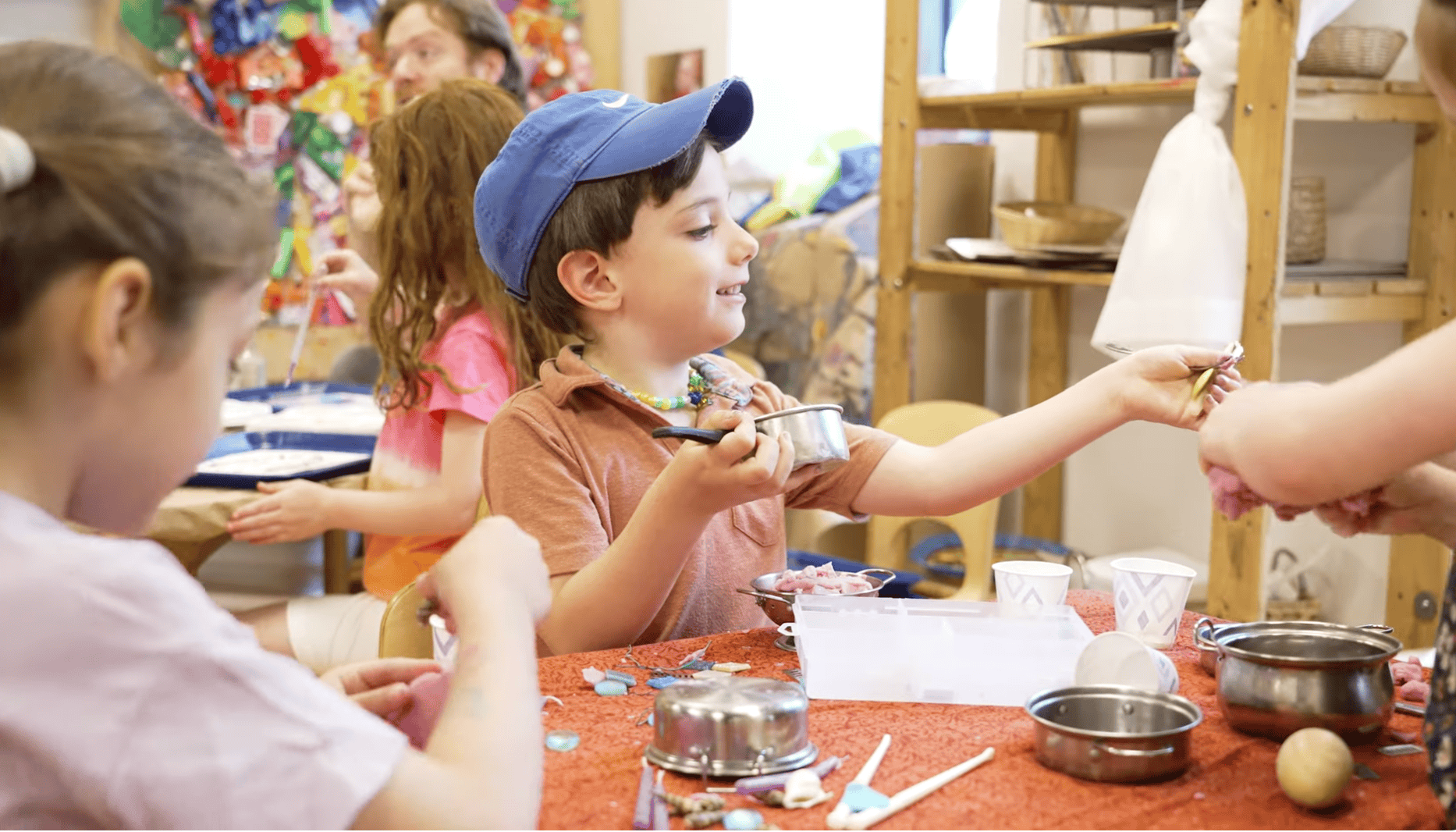
Social + Emotional Learning
Our Educational Approach
Children build ideas and knowledge based on their interaction with their environment. This takes place in an elevated manner in a classroom setting, as the environment is given thoughtful consideration by teachers. What transpires as children build these ideas and knowledge, and how does it take place in our school?


A Journey of Exploration


The drive toward knowledge depends on the intrinsic motivation of the child. Alison Gopnik writes that evolution has endowed children with a biologically innate “explanatory drive” that leaves them “consumed by a desire to explore and experiment with objects.” Children are born equipped with a need to explore, just as they need material sustenance. Children are thus self-propelled in their journey through the cognitive gap (“What’s under there?” and “Huh? Why did it do that?”). As children explore their world, they are eagerly experimenting on their own ideas.
Gopnik sees learning as “more like wandering than voyaging—a journey of exploration rather than conquest.” Accordingly, our teachers employ an emergent curriculum, a phrase and idea inspired by the teachers of Reggio Emilia, Italy. This curriculum emerges from the passion, exploration, and experiences of the children each year. No two curricula are ever identical; each bears the imprint of the actual students engaged in the learning. An emergent curriculum allows our teachers to turn the above theories into practice, as both the cognitive gaps and the methods for journeying through them flow from the child’s intrinsic motivation.
The students provide the life force in these explorations, while the teachers provide guidance and support along the way. This relationship is likened to a river: students as the water, full of power, energy, and motion; teachers as the riverbanks, providing direction and sustaining a coherent flow. We often say that our teachers and students co-construct their curriculum. A topic may emerge from a child (“I stepped in a puddle this morning, but it was ice!”) as the teachers work in concert to deliver rich experiences (“Why was the puddle ice? How can we explore that in the classroom?”).
Joyful Play


These learning experiences are play-based, joyful, and full of imagination. Children’s learning, their voyaging through these cognitive gaps, is centered in their play. Vivian Paley, a matriarch of the modern American early childhood classroom, writes that young students are “the only age group in school that is always making up its own work assignments. It looks and sounds like play, yet we properly call this play the work of children.”
Why do children learn while they play? Children need social contexts in which to develop and test their nascent theories about the world. These contexts need to be free of pressure and adult expectations. When children are given extended periods of uninterrupted play in a supportive environment, they are able to conduct their explorations in a meaningful way. Succinctly put, play is the child’s textbook. This is not only true for empathy, sharing, and self-regulation, but for early academic work as well. Our children learn literacy and numeracy through play, alongside and embedded within their social and emotional learning.
Stimulating Environments


While this play is often messy, frenzied, and spontaneous, it is also carefully curated by our classroom teachers, the banks along the river. Our teachers sculpt the environment around our students to provide appropriate provocation and stimulation along the way. This focus on environment is also inspired by Reggio Emilia, where the environment is seen itself as an additional teacher. Novel materials are present throughout our curriculum and meet the child’s explanatory drive head-on (“Wow! I’ve never seen this before. I wonder how I can use it?” or “I didn’t know you could paint with pinecones. I wonder what else you can do with them.”).
Developmental Milestones


A developmental framework, written by our teaching staff, includes benchmarks for social and emotional learning (such as empathy, sharing, and self-regulation); physical growth (such as sitting in a chair, pouring water into a cup, and getting dressed); and academic learning (such as letters, numbers, patterns, and shapes). Jerome Bruner writes that a teacher’s role is “to provide the growing child with problems that tempt him into the next stages of development.” By outlining what these next stages are, our teachers are well-equipped to provide just the right scaffolding along the way. While our children’s play is often whimsical, it occurs within the intentional and expert guidance of our teachers.
We believe that knowledge is constructed by children as they explore their world and grapple with the cognitive gaps they encounter. This learning and development is accentuated in our school through the employment of a play-based emergent curriculum, guided by teachers toward age-appropriate milestones in a variety of domains.
We are constantly growing and exploring ourselves, and know that our own understanding of teaching and learning is never fully settled. We are always eager to learn more from our children as we test our own theories.
Donate to the Nursery School
Help us continue to ensure accessible programming for everyone. Please support the Nursery School at the Marlene Meyerson JCC Manhattan.